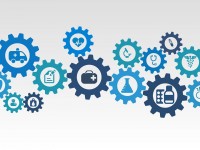As healthcare evolves rapidly, keeping up-to-date on essential knowledge, developing continuously, and honing diverse skills are paramount for success. This blog post serves as a roadmap, outlining key components that medical professionals must know, learn, and master to thrive in their profession. From fundamental medical knowledge, clinical skills, evidence-based practice, and interprofessional collaboration to excellence in healthcare delivery, we explore all essential competencies that define excellence.
No matter where you are on your medical journey, this guide offers valuable insights and practical advice that can aid in your ongoing growth and development in this field.
Handling Medical Tools
As part of your journey towards mastering medical practice, becoming proficient with using appropriate equipment is of utmost importance. Understanding and effectively using complex imaging systems or intricate surgical instruments are integral parts of providing optimal patient care.
For instance, if you’re a medical scientist, a single cell imager plays a significant role in cell analysis. Cutting-edge technology enables precise visual analysis and diagnosis of individual cells for in-depth research and diagnosis. Understanding its intricacies allows medical scientists to use this advanced technology for improved diagnostic accuracy and treatment efficacy.
Evidence-Based Practice (EBP)
Evidence-based practice is a beacon of hope in today’s healthcare environment as it offers guidance that integrates patient preferences, clinical expertise, and scientific research optimally. By utilizing EBP guidelines, physicians tailor care plans specifically for individual patients. By adhering to EBP principles they ensure they’re providing top-quality care that’s supported by current findings, and backed up with personalized treatments tailored for every unique need, not simply following rules blindly.
As medicine advances, EBP encourages medical professionals to keep learning, evolving, and innovating in their practice. This helps physicians to continuously improve patient outcomes, increase safety, and progress medical science.
Patient-Centered Care
Patient-centered care, also known as person-centered care, is an approach that is closely linked to the rights of a patient. Putting the patient at the center of healthcare is crucial for medical professionals and services. This means:
- Treating patients with respect, dignity, and compassion;
- Coordination and communication among different services and appointments over time is vital, for instance, when referring a patient from their general practitioner to specialists;
- Collaborating to share healthcare responsibilities between a community hospital and a health service;
- Tailoring the care to meet the specific needs and goals of each patient;
- Supporting patients in learning and understanding their health conditions;
- Assisting to help patients stay healthy, independent, and capable of self-care;
- Ensuring patients are always actively involved in decisions regarding their health.
Professionalism and Medical Ethics
Maintaining high standards in medicine is very important. Doctors follow key principles like doing good for patients, not causing harm, respecting patient choices, and being fair. This helps keep medical practices honest and builds trust between patients and doctors. It’s not just a rule; it’s about keeping the special trust that exists between patients and doctors strong.

Continuous Learning and Professional Development
Constant learning and professional development are the foundations of healthcare delivery excellence. Pursuing new knowledge through conferences and literature helps medical professionals stay ahead of innovation while honing their skills, expanding expertise, and providing superior patient care.
By seeking new knowledge through these outlets, medical professionals can fine-tune their abilities to adapt to evolving medical practices while improving outcomes, cementing their commitment to exceptional healthcare delivery services.
Interdisciplinary Collaboration
Teamwork among medical workers from different sectors is critical in today’s ever-evolving healthcare world. By sharing knowledge and respecting each other’s skills, doctors, nurses, scientists, and others, must work collaboratively to provide optimal patient care.
By communicating clearly and showing regard, healthcare teams can combine different ideas and come up with comprehensive patient solutions that deliver maximum care to every patient. Working together isn’t just a choice; it’s necessary.
Patient Safety and Quality Improvement
Patient safety and quality improvement are cornerstones of medical practice. Healthcare providers must remain alert for potential threats to patient welfare such as errors, gaps in care, or adverse events that might threaten well-being. Take proactive measures against them when necessary and address them effectively.
Undertake audits, root cause analyses, or quality improvement initiatives within healthcare institutions to foster an environment conducive to continuous enhancement in patient care, leading to optimal results for all individuals under medical supervision.
Self-Care and Wellness
An online survey of 1,006 U.S. adults and 304 physicians revealed that 96% (9 in 10) physicians consider self-care essential to a person’s health. However, prioritizing self-care and wellness is also paramount in healthcare, where personal well-being should also be considered among medical professionals, and not just their patients.
Reconciling caregiving duties and individual health is essential to peak performance as well as avoiding burnout. Self-care for medical professionals is just as vital, helping them maintain their well-being so they can deliver high-quality care to patients. Establishing healthy routines such as regular exercise, mindfulness practices, and creating supportive connections, all help to promote holistic well-being among medical professionals and increase resilience among them.
Medical professionals need a diverse set of skills that span foundational medical knowledge, clinical skills, evidence-based practice, patient-centric care, critical thinking, medical ethics, continuous learning, interdisciplinary collaboration, patient safety quality improvement, and self-care. By cultivating these competencies and making lifelong learning part of their professional growth goals, medical professionals can fulfill their noble mission of providing compassionate high-quality healthcare while furthering medicine itself.







This essential guide for medical professionals is a comprehensive resource for both aspiring and seasoned healthcare professionals. From mastering patient communication to staying updated on the latest medical advancements, this article covers it all. A must-read for anyone looking to excel in the dynamic field of healthcare!